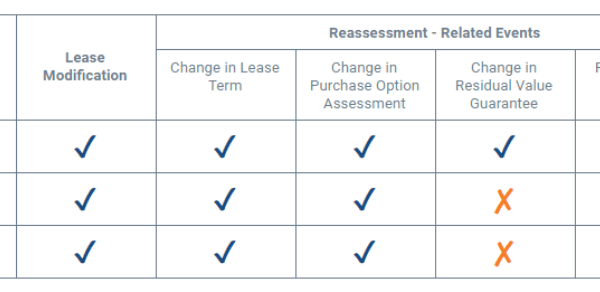Author: Buildout This post originally appeared on Buildout’s Blog and is republished with permission. Find out how to blog with us on theBrokerList.
A successful commercial real estate marketing strategy will cover a range of initiatives that will have the widest possible reach—and each initiative should work to help the firm and its brokers stand out, maximize their reach, generate quality leads, and drive growth.
But effective marketing in the commercial real estate industry is hard to get right. And with busy schedules, budget limitations, and numerous marketing channels to choose from, there’s a lot for brokers and brokerages to think about.
Because marketing in the commercial real estate industry is different than marketing in any other industry, we put together this complete guide to help you successfully market commercial real estate.
By the end of this article, you’ll have a better understanding of CRE marketing, the most effective CRE marketing strategies, and some important CRE tools you’ll need to maximize your efforts.
Table of contents
What is CRE marketing?
CRE marketing is all about creating, communicating, delivering, and exchanging offerings that have value for your customers, clients, partners, and the CRE industry. It’s also designed to influence your target audience to work with you and, ultimately, generate revenue. At its core, marketing seeks to take a product or service, identify its ideal customers, and draw the customers’ attention to the product or service available.
CRE marketing is a little different from traditional marketing. For example, marketing materials like listings, proposals, and virtual property tours play an important role in getting clients.

Optimizing listings is critical in CRE. Vibrant photos, mobile-friendly brochures, and PDFs can help your listings stand out from the rest. Writing winning proposals can be a challenge, too. Brokers have to sell themselves along with the business services and strategies they provide to clients. (Here’s a guide to help with that.) CRE marketers also often showcase properties through virtual tours where clients can explore the property and truly experience it—without having to leave their computer.
CRE marketing strategies
Marketing commercial properties
Marketing in the commercial real estate industry is a challenge—without a doubt. However, brokers and brokerages need to evaluate all possible CRE marketing strategies to determine where to focus their efforts.
Potential areas of focus include
- CRE digital marketing
- CRE content marketing
- CRE email marketing
- CRE video marketing
- CRE social media marketing
- CRE paid advertising
CRE digital marketing
Digital marketing is the use of the Internet, mobile devices, social media, search engines, and other channels to reach prospects. Relying solely on old-school marketing tactics isn’t enough to make your CRE brokerage stand out, so you’ll need to make a significant investment in digital marketing initiatives to expand the presence of your brand. But since everything is digital, marketing campaigns have become very competitive.
Here are a few tips to help you make the most of your digital marketing efforts
- Develop a professional website that adequately showcases your CRE firm
- Invest in SEO
- Expand your visibility with search ads on major search engines like Google
Pro tip: Craft a clear strategy and communication plan to target your defined audience through various channels.
Why it’s important to invest in SEO
By investing in SEO and raising your rankings in search engines, you’ll send better quality traffic to your website which can generate more leads and deals for your business. SEO is a multifaceted strategy that can help advertise, sell, and build your brand, and it’s an important area for investment for every business. And if your brokerage is focused on a specific market, following local SEO best practices can give you a major leg up.
CRE content marketing
Content marketing is used to attract, engage, and retain an audience by creating and sharing relevant content. Though this strategy takes time to pay off, it’s very effective at building trust with your audience, improving conversions, helping you connect with clients, and generating leads. (Not to mention clients have come to expect high-quality, consistent content from their favorite brands.)
Here are a few tips to help you make the most of a content marketing strategy
- Create and publish content frequently
- Capture blog visitors with topics that matter to them
- Offer resources that are useful to potential clients
- Capture and share client stories
Pro tip: Publish relevant content—market reports, brokerage trends, success stories, best practices, and more—in a variety of formats.
CRE email marketing
Email marketing is the use of email to promote your listings, establish your brand, and develop relationships with prospects and clients. Chances are, if you have a good CRM and prospecting system, you have target prospects in your database already. So, you’ll want to leverage your contact records and notes, segment your prospects based on needs and interests, and use branded email marketing to maximize exposure and generate leads. Make sure to send your emails to the correct target audience because errors in email delivery or design may cause recipients to unsubscribe.
Here’s how you can get the most out of email marketing
- Use emails to promote useful content
- Write enticing subject lines
- Stick to one CTA per email
- Ensure email designs are responsive
- Segment emails based on audience
Pro tip: Practice A/B testing when sending emails to your target audience to identify what content and style result in higher engagement rates.

CRE video marketing
Video content is a great storytelling and marketing tool to promote your services and increase engagement on your digital and social channels. That’s why many CRE professionals devote significant time and resources to creating high-quality videos that show off their listings. Just make sure any videos you create aren’t too long or filled with unnecessary details, because it could increase the bounce rate.
One benefit of video marketing is how well it showcases client testimonials. Testimonial videos allow prospects to see clients talk about your brokerage—providing your brand with credibility through social proof. Video is also great for virtual property tours. Virtual property tours will not only let clients and prospects explore the property, but they can also drive massive traffic to your website. You’ll attract more clients, and your website will rank better in search results.
Here’s how you can use video to elevate your brand and showcase your listings
- Create videos that highlight staff and brokerage achievements
- Promote videos of properties via YouTube advertising and organic channels
- Share client testimonials
Pro tip: Keep your videos short and include subtitles. Many people watch videos without turning on the sound while scrolling through social media feeds.
CRE social media marketing
Social media marketing uses social media and social networks to market your brand. Successful commercial real estate social media marketing can help your firm and brokers stand out, maximize reach, generate quality leads, and drive growth. But it’s not as simple as retweeting or posting on your social platforms daily. It requires a lot of content creation, engagement with your target audience, creativity, and thorough planning.
But when used correctly, social media is a powerful tool to have two-way conversations with prospects and clients. Unlike a one-way conversation where a company dominates the narrative, two-way dialogue allows a human-to-human connection between the brand and the target audience. It’s also an effective way to gain insight on what your target audience is saying about you, your brand, and your market.
Here are some of the best ways to use social media in your marketing strategy
- Build your presence on social media
- Develop different types of content to share across social channels
- Leverage LinkedIn, Instagram, Facebook, Twitter, and YouTube
- Use LinkedIn for research and outreach
Pro tip: Create a social media calendar and posting schedule to regularly engage with your audience and stay top of mind.
CRE paid advertising
With paid advertising, marketers pay the owner of ad space in exchange for use of that space. Social media platforms are great for increasing your brand awareness and generating quality leads via ads. Google Ads can help drive traffic to your website and convert them into leads quicker, but it’s not always low-cost and, unlike SEO, doesn’t provide you with long-term results, unless you continue to invest in it. If it’s within budget, you should explore paid advertising options and monitor your ROI to see what works best.
Here are some tips to get the most out of paid advertising
- Advertise on social platforms to increase brand awareness
- Use bottom-of-funnel keywords for Google Ads
- Promote high-quality videos on YouTube
Pro tip: Paid advertising requires a careful analysis of which channels and messages are driving the most revenue, so you can increase your ROI over time.
Other commercial real estate marketing ideas
One key component of marketing in the commercial real estate industry that we have not yet discussed is networking. To help you think about what still works, check out our tips for commercial real estate networking and enhance your network this year.
Essential documents for commercial real estate brokerages
When it comes to CRE marketing, there are certain documents you can’t live without as a broker or brokerage.
Here are five of the most important marketing documents every CRE brokerage needs
- Commercial real estate broker proposal – a pitch document used to win a listing or secure an exclusive which details information on the broker, the brokerage, and their history
- Broker opinion of value (BOV) or broker price opinion (BPO) – a detailed financial investment report that’s like a proposal
- Commercial real estate property brochure/flyer – brochures and flyers provide a brief snapshot of the listing and are designed to attract attention
- Commercial real estate offering memorandum (OM) – a document with very detailed information on financials and details of the property, both historically and in the future
- Owner’s report – a status report of the listing that includes things like where it’s listed, how many emails have been sent, how many times the offering memorandum has been downloaded, and other marketing activity
Get our compiled list of these critical marketing materials or download our free broker toolkit, which is filled with essential templates to help you prospect more effectively and close more deals.

How to create a successful commercial real estate marketing strategy
To create a successful commercial real estate marketing strategy, you’ll need to
- Define your target audience
- Set goals and objectives
- Stick to defined marketing initiatives
- Measure your results
Defining your target audience
Before you start diving into your marketing initiatives, it’s essential that you set goals and define your target audience. Because just like any other marketing strategy, CRE marketing is all about targeting and having a plan.
Your target audience and buyer personas are key to your entire marketing strategy. You want to serve a large enough group that you can sustain your business, but you also want it to be small enough that you can truly become an authority in your market. This will ensure your content gets to the right people, and it can help you develop a better prospecting pitch.
Answer questions like
- Who will our brokerage serve?
- What problems do we help solve?
- Who are we trying to reach?
- Where are the people we are trying to reach?
- Which platforms does our target audience use?
- What does our target audience (want to) read online?
Attracting an audience
One of the most basic ways to attract an audience is to put out and promote content that is useful and relevant. Creating videos, blog articles, and social media content surrounding the topics your intended audience is interested in will help you grab their attention.
There are also other methods worth trying, such as targeted ads that are only displayed to those who show interest in your brand (who are much more likely to convert). Another great tactic is creating gated content. Those who find value in your content will be more willing to share their contact information, helping you grow your contact database and build an audience.
Answer questions like
- Is our content relevant?
- Are our paid ads targeting the right audience?
- Are we taking advantage of current social media trends?
- Do we have effective SEO strategies in place?
Setting goals and objectives
Setting goals and objectives is just as important as defining your target audience. How do you plan and strategize to get somewhere if you don’t even know where you’re going (or where you want to go)? How will you measure success if you haven’t defined what that looks like? Fortunately, SMART goals can help guide your goal-setting.
To ensure your goals are attainable, each one should be
- Specific (simple, significant)
- Measurable (meaningful, motivating)
- Achievable (agreed, attainable)
- Relevant (realistic, results-based)
- Time bound (timely, time/cost limited)
Sticking to defined marketing initiatives
It’s easy to get distracted when you try to do too much. Brokerages are better off when they stick to a few key tactics and strategies and focus all their efforts on doing them well.
Get as detailed as possible when creating your marketing strategy—and that includes developing a concrete plan about which channels you’ll use, types of content you’ll create, who needs to be involved, budgets, tools, and more.
Answer questions like
- What marketing channels will we leverage?
- What types of content will we post?
- Who will create the content?
- Who will be involved in posting content?
- What tools or software do we need?
- What’s our total marketing budget?
- How will we break up our budget based on marketing channels?
Measuring results
It seems obvious that after all the work you put into your marketing initiatives and campaigns, you’d want to measure your results and see where you were most successful and impactful. In other words, let the ROI speak for itself, and use that information to inform future marketing initiatives and make smarter business decisions.
However, many brokerages and CRE professionals stop just short of this important step. Don’t be one of them!
Analyze metrics like
- Website traffic
- Leads
- MQLs
- SQLs
- Opportunities
- Closed deals
- Customers
- Revenue
- Repeat business
- Referral business
- And more
Commercial real estate marketing tools
Marketing in the commercial real estate industry can be really challenging and time-consuming, especially if your brokerage lacks streamlined marketing processes. But the right tools can help.
Some tools you’ll need to market successfully include
Trying to effectively market in any industry can get expensive, but there are many ways you can create engaging marketing materials without breaking the bank. (In fact, here’s a guide to help you get started.)

Are you ready to take your marketing to the next level?
With Buildout’s commercial real estate marketing software designed specifically for CRE professionals and brokerages, you can simplify your marketing initiatives and streamline brokerage operations to help you win more listings and close deals faster.
If you haven’t seen what Buildout can do for you and your team, get in touch with us and ask for a personalized demo today.
For more updates like this and future coverage of tools in the CRE industry and other brokerage insights, subscribe to our blog.



